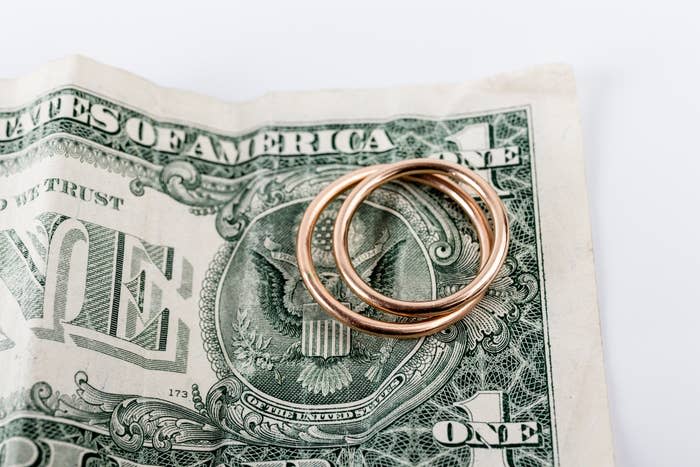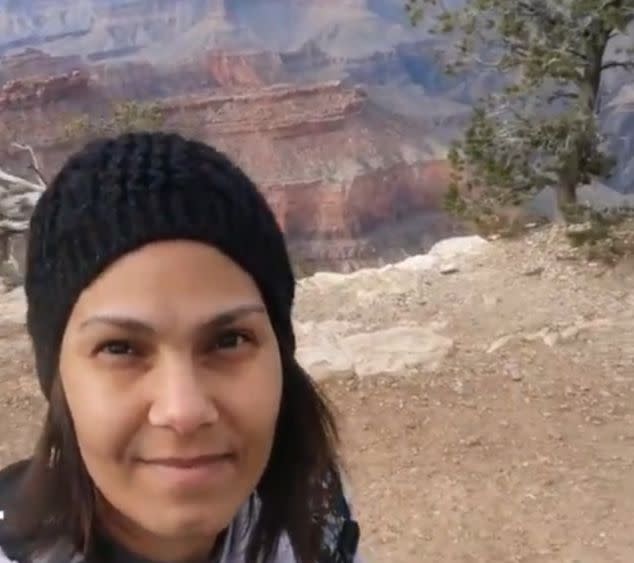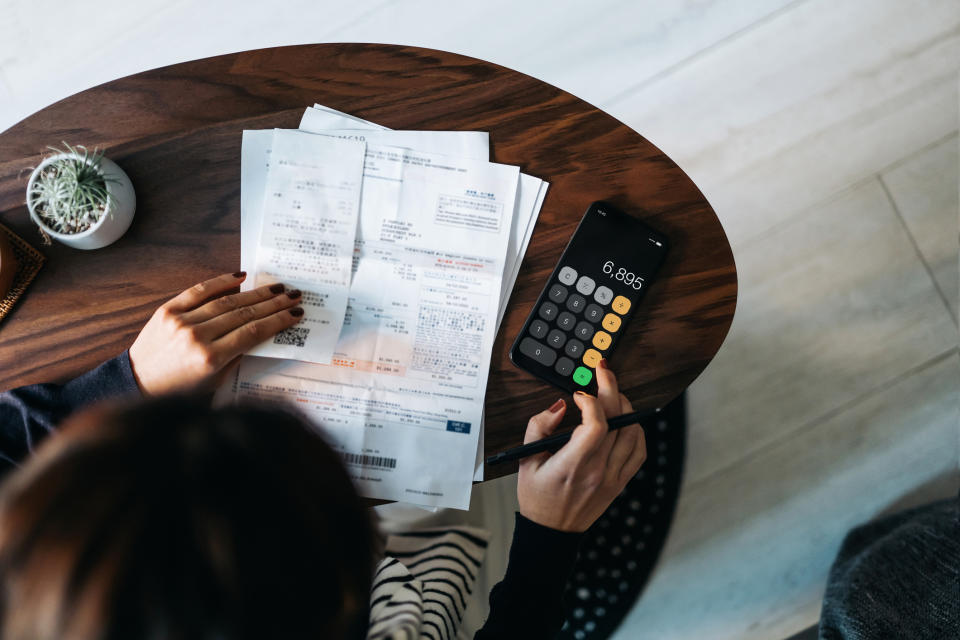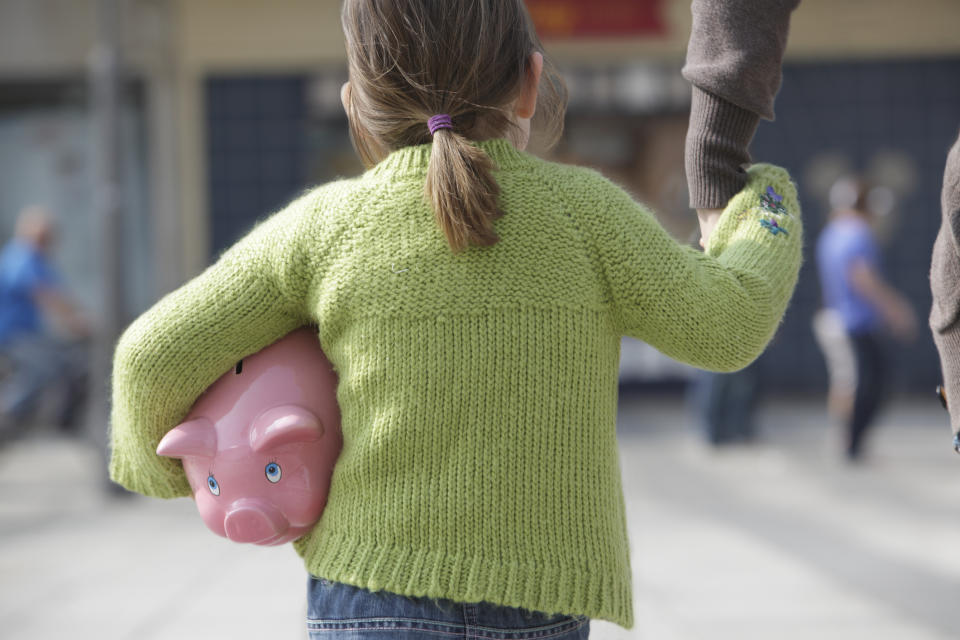Search the term “tradwife” on TikTok and you’ll find thousands of carefully curated videos from creators like 26-year-old Estee Williams from Richmond, Virginia, and Hannah Neeleman, also known as Ballerina Farm, who has amassed 7 million followers sharing cooking and homemaking videos from her Utah farmhouse. The videos feature a soft life aesthetic: modern women clad in ’50s housewife aprons, baking bread and arranging flowers in full makeup and perfectly styled hair.

The content is appealing. Williams’ TikTok has 1.3 million likes across her videos touting the benefits of relying on a partner to take care of you. In that regard, I was also a tradwife throughout my 12-year marriage.
The Tradwife Life Is A Slippery Slope

Throughout my first marriage — in our early 20s — my husband and I muddled through, three young children in tow, making the best life we could. We eventually divorced, I became a single mom, and a bit more muddling ensued. I was always one step behind, stressed out, overworked and underemployed.
Then I remarried.
When I became pregnant with my youngest — with older kids in public school — my “advanced maternal age” and medical history made the pregnancy high risk. We agreed that I should quit my job. So I did, and immediately began nesting.
I began creating the white picket fence life I thought I wanted. We even started homeschooling. If I was going to be home all day anyway, why not? I became a master of pinning craft ideas on Pinterest, meal planning and decorating my home.
In 2019, I started working from home here and there, taking on ghostwriting and freelance work, but none of that money truly contributed to the household. I let my husband take care of everything related to running the home. He’s a CPA and financial adviser by trade, so why would I “worry my pretty little head” about any of that? Had I asked, he likely would have shared the details. Neither of us gave it much thought, though, and it worked well for a while.
A Crash Course In Adulting

After our divorce hearing, I walked out of the local courthouse a homeowner, having been awarded the family home, but blissfully unaware of the ramifications.
I was suddenly solely responsible for the home maintenance, utilities, property tax and homeowners insurance. I received a crash course on adulting. I was even hit with an HOA violation letter because my home needed a good pressure washing. Of course it did; my husband hadn’t lived there for nearly a year. A patch of lichen had taken up permanent residence on my mailbox.
HOA and amenities fees were immediately due. The sprinklers needed to be programmed; with that, of course, a water bill increase. I would need to schedule and pay the lawn guy (that mulch wasn’t going to spread itself). I also quickly realized I’d better start budgeting some sinking funds for the property tax due after the holidays.
My ex-husband and I just fell into traditional gender roles; it was easier than putting in the work. When he moved out, he struggled with working his air fryer, ordering delivery on his phone and navigating the grocery store. I hadn’t necessarily dug my head in the sand over the years, but I sure hadn’t been as proactive as I could have.
The Importance Of Taking An Active Role In Finances

Shari Rash is the founder and financial advisor at GWA Wealth. “I speak with women all the time, when out socially or at moms groups, that once they hear what I do for a living I get the response, ‘Oh, my husband handles all of that,’” she told HuffPost.
Rash said that it’s often a significant event that prompts a person to act or become actively involved in managing their finances. Typically, this event tends to be something negative — perhaps the loss of a parent, unemployment, divorce, the death of a spouse, or even witnessing one of those events happen to someone close.
According to a report by Bank of America, 94% of women believe that they will be personally responsible for their finances at some point during their lives, yet they are less involved in long-term financial decisions than their partners. Nearly half of the 3,500 women surveyed said they feel confident about their finances, but only 28% feel empowered to take action on them, the report says.
Rash encourages women to take an active role in household finances, whether they work outside the home or not. “That doesn’t mean you’re tracking the stock market daily and day trading your accounts. It means you know what your household has and you’re included in the conversation,” she said.
Money Mindset Begins In Childhood

A parent’s hands-off approach to family finances has a larger effect within a family unit.
“Kids are like little sponges, absorbing every detail of our behavior, especially when it comes to relationships and finances,” certified public accountant Maya Corbic said. ”They’re shaping their money mindset as they observe how we interact with money and each other. Everything they see, hear and feel becomes their perception of ‘normal.’”
Corbic’s goal is to teach every child how to become a financially independent adult. “Many moms who attend my parent workshops share stories of how their upbringing influenced their views on finances,” she said. “For instance, some grew up in households where fathers solely made financial decisions, leading to the belief that only men handle investments. This perpetuates the notion that women shouldn’t be involved in financial matters and must rely on men for financial security.”
Corbic advises parents to be aware of the messages they’re sending children and that they “consciously model healthy financial behaviors and empower them to develop a balanced and informed relationship with money.”
One way to do this is by dedicating time each month to review the household budget, discuss spending habits and prioritize savings.
“Regular ‘money dates’ serve as a cornerstone for financial harmony,” Corbic told HuffPost, adding that they promote transparency within the family and emphasize the importance of intentional discussions about family finances.
Baby Steps To Household Finance Awareness

Rash urges those who depend financially on their partner to immediately dig in and do the work. But this doesn’t just apply to those falling into traditional gender roles in their relationships; all adults who are sharing their lives with a partner can benefit from becoming more financially aware.
Important topics to discuss with your partner include:
-
Your individual or joint debt
-
Money available in savings or investments
-
Mortgage balance and equity in home
-
Total monthly household expenses
-
Availability of emergency funds
For couples using the services of a financial adviser, Rash suggests you begin by asking yourself the following questions:
-
If you became the sole financial decision-maker of your household overnight, do you know who your financial point of contact is?
-
If you have a contact, do you feel comfortable talking to them?
-
Do you know what accounts your spouse or partner has?
-
What company issues your life insurance policies?
“If you’re unable to answer those questions, that likely means you need to take some steps to get involved for your own protection,” Rash said.
While I still have a long way to go, with each new experience, I gain the financial confidence and self-esteem that I lacked while living the tradwife lifestyle. I have an upcoming appointment with a CPA, opened an investment account, began paying more attention to my retirement accounts, and most importantly, I’m gaining skills, knowledge and wisdom that I can share with my children so that they can protect their financial futures. This article originally appeared on HuffPost.
EMEA Tribune is not involved in this news article, it is taken from our partners and or from the News Agencies. Copyright and Credit go to the News Agencies, email news@emeatribune.com Follow our WhatsApp verified Channel




